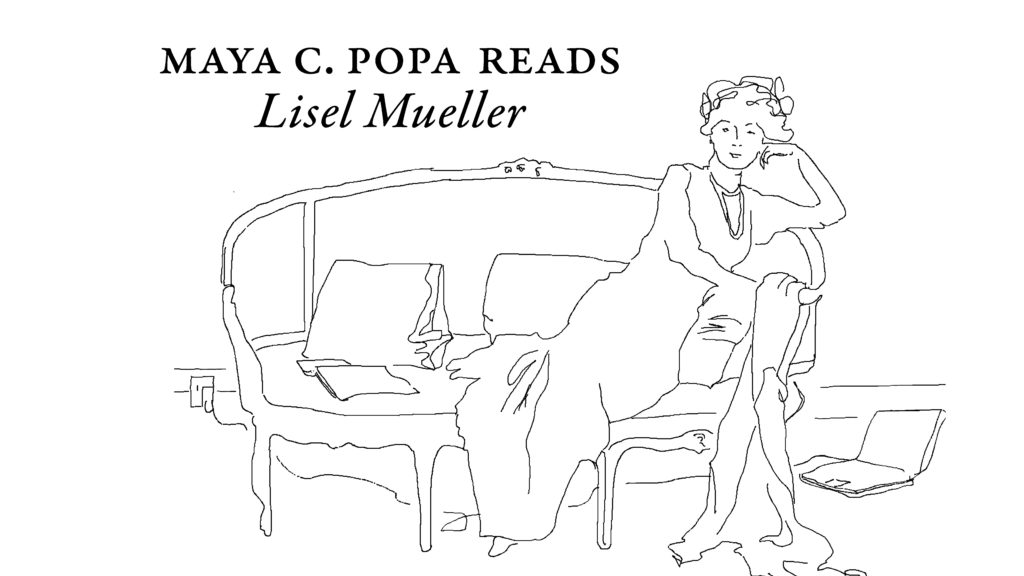In our new series of videograms, poets read and discuss the poems getting them through these strange times—broadcasting straight from their couches to yours. These readings bring intimacy into our spaces of isolation, both through the affinity of poetry and through the warmth of being able to speak to each other across the distances.
“Monet Refuses the Operation”
by Lisel Mueller
Issue no. 84 (Summer 1982)
Doctor, you say there are no haloes
around the streetlights in Paris
and what I see is an aberration
caused by old age, an affliction.
I tell you it has taken me all my life
to arrive at the vision of gas lamps as angels,
to soften and blur and finally banish
the edges you regret I don’t see,
to learn that the line I called the horizon
does not exist and sky and water,
so long apart, are the same state of being.
Fifty-four years before I could see
Rouen cathedral is built
of parallel shafts of sun,
and now you want to restore
my youthful errors: fixed
notions of top and bottom,
the illusion of three-dimensional space,
wisteria separate
from the bridge it covers.
What can I say to convince you
the Houses of Parliament dissolve
night after night to become
the fluid dream of the Thames?
I will not return to a universe
of objects that don’t know each other,
as if islands were not the lost children
of one great continent. The world
is flux, and light becomes what it touches,
becomes water, lilies on water,
above and below water,
becomes lilac and mauve and yellow
and white and cerulean lamps,
small fists passing sunlight
so quickly to one another
that I despair, my brush not being
long, streaming hair. To paint
the speed of light! Doctor,
our weighted shapes, these verticals,
burn to mix with air
and change our clothes, skin, bones
to gases. If only you could see
how heaven pulls earth into its arms
and how infinitely the heart expands
to claim the world, blue vapor without end.
Maya C. Popa is the poetry reviews editor of Publishers Weekly and the author of American Faith.
from The Paris Review https://ift.tt/2JqWA6w

Comments
Post a Comment